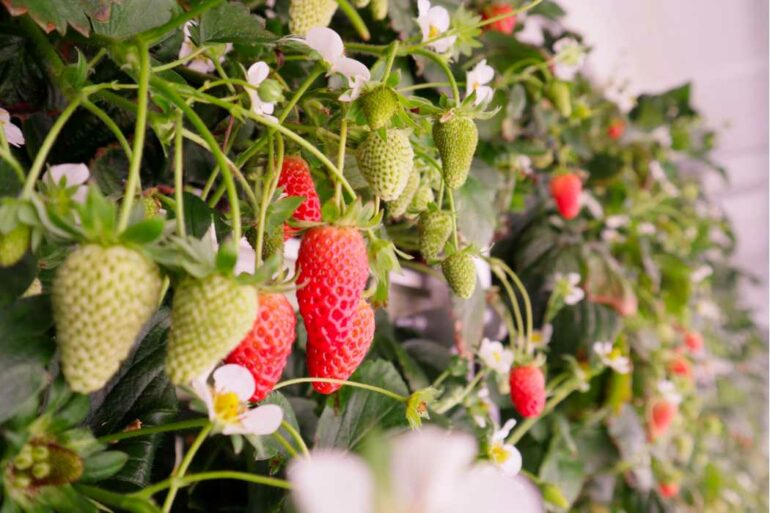Québec-based agtech company Ferme d’Hiver (Winter Farm) has raised $46 million CAD to take a bite out of Canada’s strawberry imports with local, vertical farming.
Of this funding, the Government of Québec and Investissement Québec, which are returning investors, contributed more than $32 million. New investors Desjardins, Farm Credit Canada, Financière Agricole du Québec and Capital Financière Agricole also took part in the financing, as well as two private partners, whose identities were not disclosed.
Ferme d’Hiver’s technology mimics the sun, rain, and wind, omitting the need for chemical pesticides.
Established in 2018, Ferme d’Hiver combines precision agriculture with engineering systems and artificial intelligence to design, deploy, and operate controlled-environment agriculture solutions.
The company’s “winter farm” technology mimics the sun, rain, and wind, omitting the need for chemical pesticides. By focusing on vertical farming, Ferme d’Hiver claims its winter farm maximizes the available cultivation area and increases the production capacities of market gardeners.
Ferme d’Hiver works with local producers to integrate its vertical farming technology into their facilities, and partners with retailers to distribute the produce.
RELATED: Today in funding: Railz, Relay Platform, Ferme d’Hiver, Optable, interVal
This recent infusion of capital will allow Ferme d’Hiver to build a vertical farm in Québec with the goal to produce nearly one million kilograms of strawberries each year and replace 10 percent of Canada’s strawberry imports.
Working towards this goal, a spokesperson for Ferme d’Hiver said the capital enabled the company’s acquisition of fruit and vegetable producer and retailer Les Serres Vaudreuil, which will manage operations and production of Fraise d’hiver strawberries.
In the coming months, Ferme d’Hiver said that six 600 square metre vertical farms will be added to two existing farms it already has in operation. These installations, according to the company, will produce high quality strawberries year-long in Québec, while using 20 to 25 times less space than open field production. Ferme d’Hiver said this approach recovers 90 percent of irrigation water used and generates minimal greenhouse gasses.
Ferme d’Hiver previously raised a $5 million seed round last year, which also saw contributions from the provincial government and Investissement Québec.
Featured image courtesy Ferme d’Hiver.


